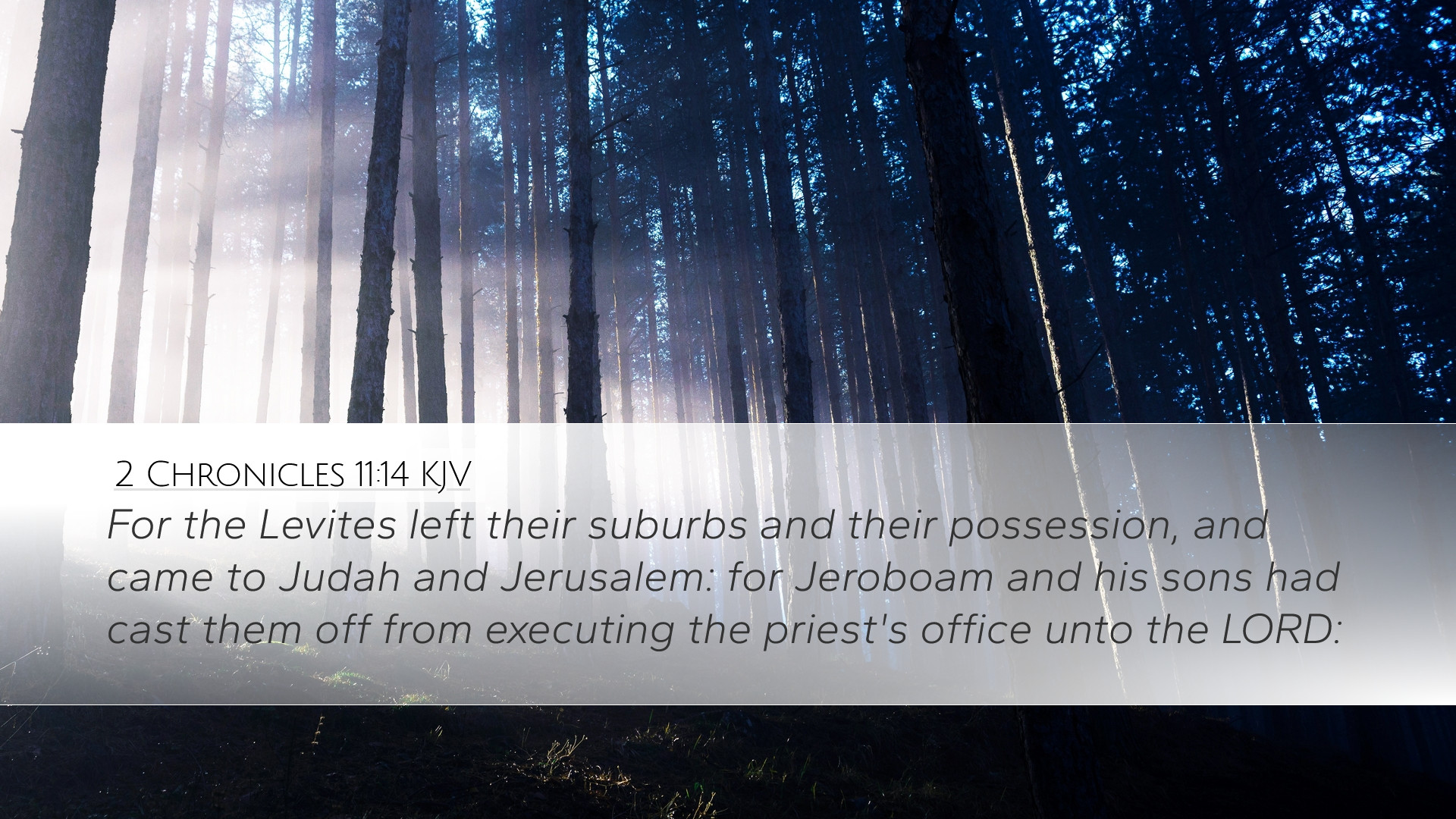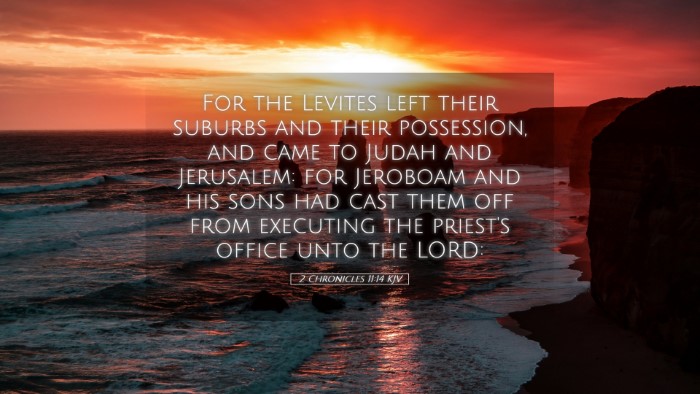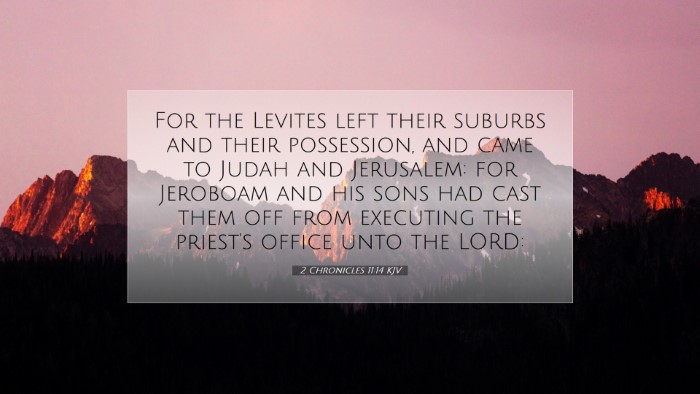Commentary on 2 Chronicles 11:14
Verse: "For the Levites left their suburbs and their possession and came to Judah and Jerusalem: for Jeroboam and his sons had cast them off from executing the priest's office unto the Lord."
Context and Background
This verse is situated in a pivotal moment following the division of the kingdom after Solomon's reign. It highlights the significant transition in religious worship and the priesthood during this time. The Levites, who were set apart for temple duties and service, found themselves estranged from the northern kingdom under Jeroboam’s rule, where the true worship of Yahweh was compromised.
Insights from Matthew Henry
Matthew Henry emphasizes the Levites’ loyalty to God’s ordained worship. They recognized that Jeroboam’s establishment of golden calves as objects of worship was a departure from the faith. Henry notes that the Levites chose to forsake their lands for the sake of serving God in the proper context of worship.
- Decision to Leave: The Levites' decision to emigrate to Judah and Jerusalem is presented as a courageous stand against idolatry. They prioritized their spiritual duty over material possessions.
- Faithfulness: Henry illustrates this move as an act of faithfulness to their God-given roles, showing that true service to God often requires sacrifice.
- God’s Sovereignty: This passage demonstrates God's sovereignty in preserving a remnant loyal to the true worship of Him, as the Levites sought to return to a place where they could fulfill their priestly duties.
Insights from Albert Barnes
Albert Barnes provides a broader theological reflection on this verse, focusing on the implications of leadership and spiritual integrity.
- Jeroboam’s Leadership: Barnes highlights the failure of Jeroboam as a leader; he is blamed for leading his people into syncretism. His actions prompted the Levites to leave, demonstrating how poor leadership can lead to spiritual decline.
- Return to God: Barnes notes that the Levites willingly abandoning their homes shows a profound desire to return to the genuine worship of the Lord, reinforcing the theme of seeking refuge in divine truth amidst perilous situations.
- Call to Ministry: This scenario serves as a reminder for pastors and leaders today to remain steadfast in upholding the truth of the Gospel, even if such integrity requires difficult choices.
Insights from Adam Clarke
Adam Clarke offers additional historical context regarding the Levites and their role in Judah and Jerusalem.
- Historical Context: Clarke elaborates on the Levites' history of being assigned cities and how Jeroboam’s actions posed a threat to their divinely appointed roles, creating a situation of conflict that necessitated their migration.
- Consequences of Apostasy: He points out the consequences of Jeroboam’s apostasy not only for the immediate generation but for future generations, emphasizing the long-lasting effects of turning away from God.
- Model of Commitment: Clarke encourages believers to adopt the Levites' model of unwavering commitment and readiness to abandon what is comfortable for the sake of God's truth and glory.
Theological Implications
The insights from these commentaries raise crucial theological insights for today’s audiences:
- The Importance of Orthodoxy: The actions of the Levites provide a model for faithfulness to sound doctrine in a time when it is under threat. Leaders are called to guard the integrity of the faith.
- Worship and Community: This verse reflects on the necessity of communal worship and the role of the church in preserving orthodox worship practices.
- Community Sacrifice: The Levites' move demonstrates that sometimes the community of faith must make sacrifices for the sake of upholding the truth.
Conclusion
2 Chronicles 11:14 invites deep reflection on the nature of spiritual leadership, the prioritization of worship, and the necessary sacrifices involved in following the Lord’s call. The Levites’ migration is not merely an act of relocation but a profound declaration of their commitment to God over earthly possessions. For pastors, students, and theologians, this passage serves as a significant reminder of the enduring call to fidelity in worship, urging believers to seek out and maintain sacred spaces where the true worship of God is upheld, no matter the cost.


